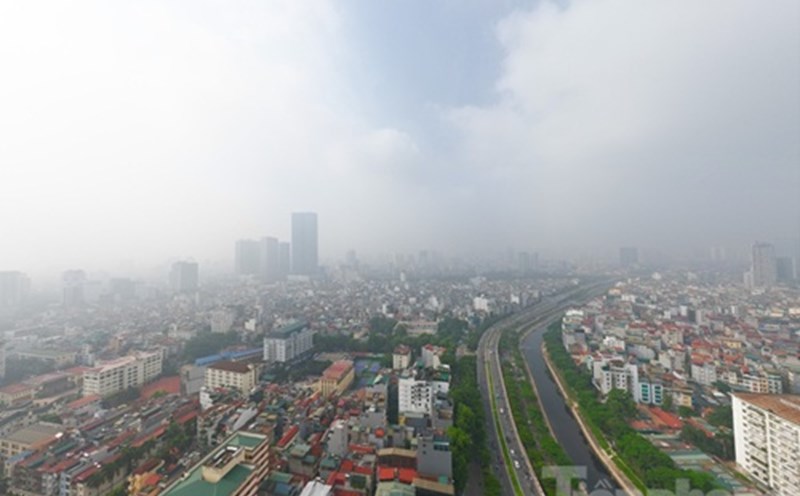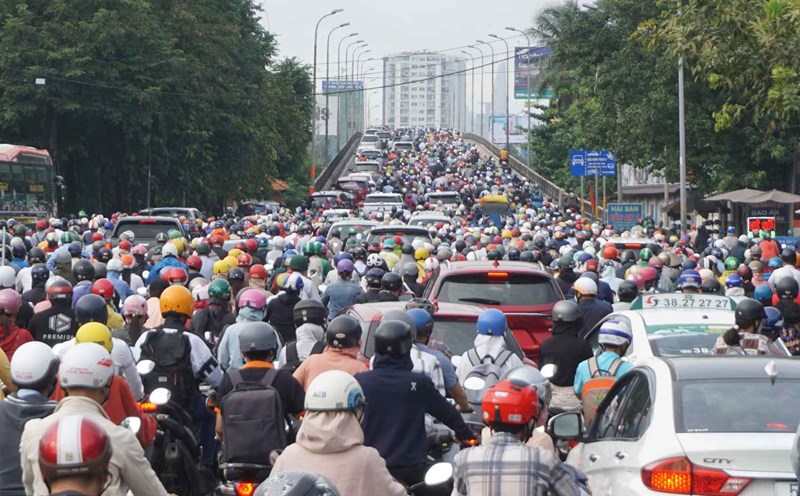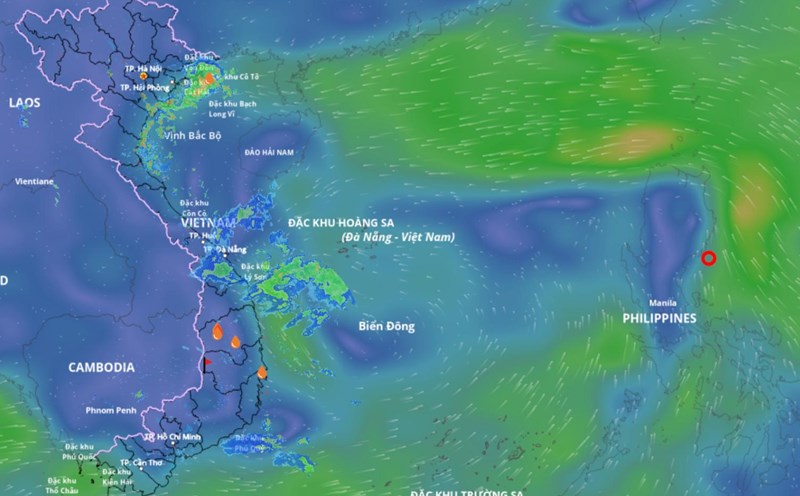Necessary directives to protect the environment, reduce air pollution
Environmental pollution, especially air pollution, is getting worse. At many times, air quality indexes in large cities exceed safety thresholds, directly affecting people's health.
According to Dr. Hoang Duong Tung - Chairman of the Vietnam Clean Air Network, observation data in recent years shows that PM2.5 fine dust concentration is always high, especially in Hanoi and Ho Chi Minh City. The main cause comes from socio-economic activities, in which private transport is the largest source of emissions.
Hanoi currently has about 7 million motorbikes, equivalent to 7 million million million million liters of waste per day. Emissions from production facilities and construction works causing dust, along with spontaneous garbage burning, also contribute to increased pollution, generating many toxic substances such as dioxin and furan, Mr. Tung emphasized.
The World Health Organization has warned that air pollution is one of the biggest threats to human health, causing about 7 million deaths each year. If not controlled, the consequences for public health will become increasingly serious.
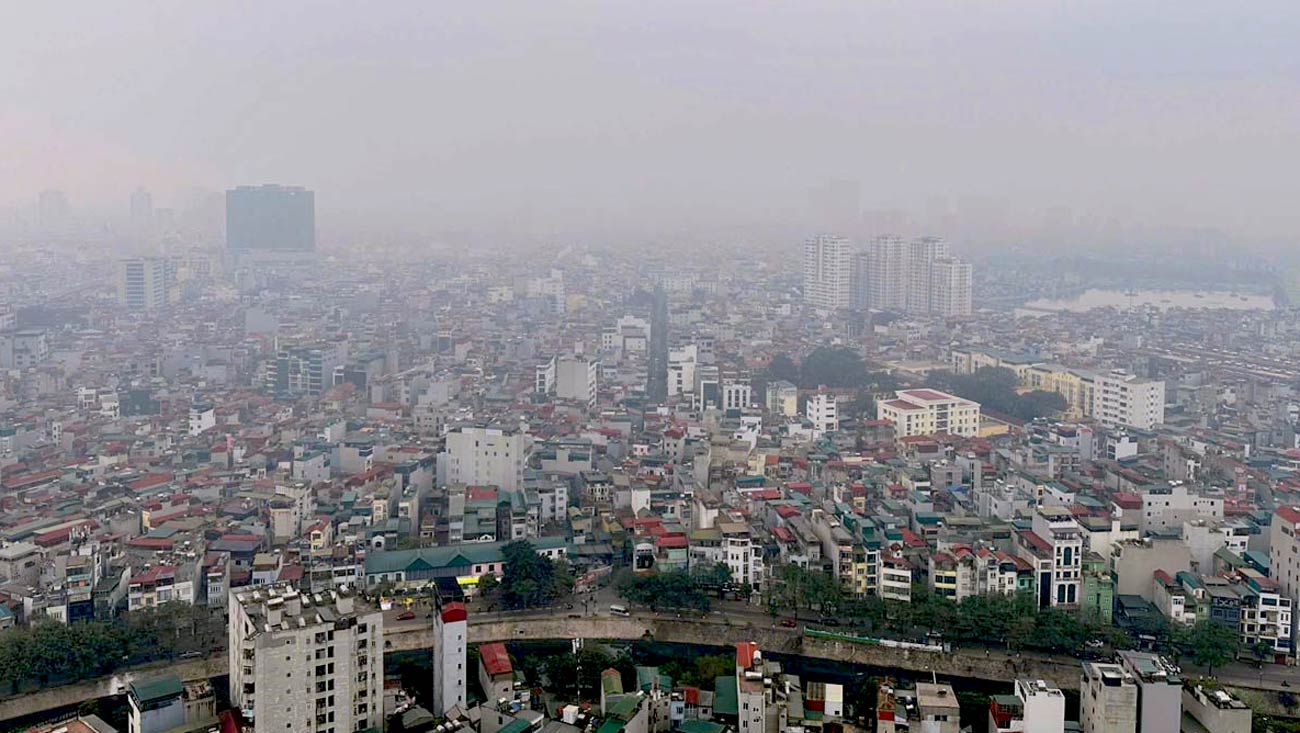
Faced with environmental pollution and air pollution, on July 12, the Prime Minister signed and issued Directive No. 20/CT-TTg of the Prime Minister on a number of urgent and drastic tasks to prevent and resolve environmental pollution. In the Directive, the Prime Minister has requested the Hanoi People's Committee to focus on directing and immediately implementing a number of key solutions with a roadmap for environmental protection, including measures on emission control and pollution reduction such as:
Implement solutions and measures to ensure that organizations and individuals who convert vehicles and roadmaps by July 1, 2026 will not have motorbikes or mopeds using fossil fuels circulating in Ring Road 1; from January 1, 2028, there will be no motorbikes or mopeds, and private cars using fossil fuels will be restricted to circulate on Ring Road 1, Ring Road 2; from 2030, they will continue to expand implementation in Ring Road 3.
Immediate measures to protect the environment and reduce air pollution
According to Prof. Dr. Hoang Xuan Co - Head of the Science Department, Vietnam Environmental Economics Association, Directive 20 can somewhat reduce environmental pollution. If the plans in the directive are implemented seriously, the results will be very obvious.
Regarding the plan to not have motorbikes or mopeds using fossil fuels circulating in Ring Road 1 from July 1, 2026, Prof. Dr. Hoang Xuan Co - said that there needs to be a plan to specify: Which agency will implement it? What should be done? How to do it? And where are the resources? Only by clearly defining these four contents can the plan be effectively implemented, avoiding interruptions in the roadmap and reducing difficulties for people.
Prof. Dr. Hoang Xuan Co emphasized: "If you don't do it well, people will react strongly. Therefore, all plans must be implemented skillfully and harmoniously to both achieve the goal and not put pressure on people in the process of converting vehicles".
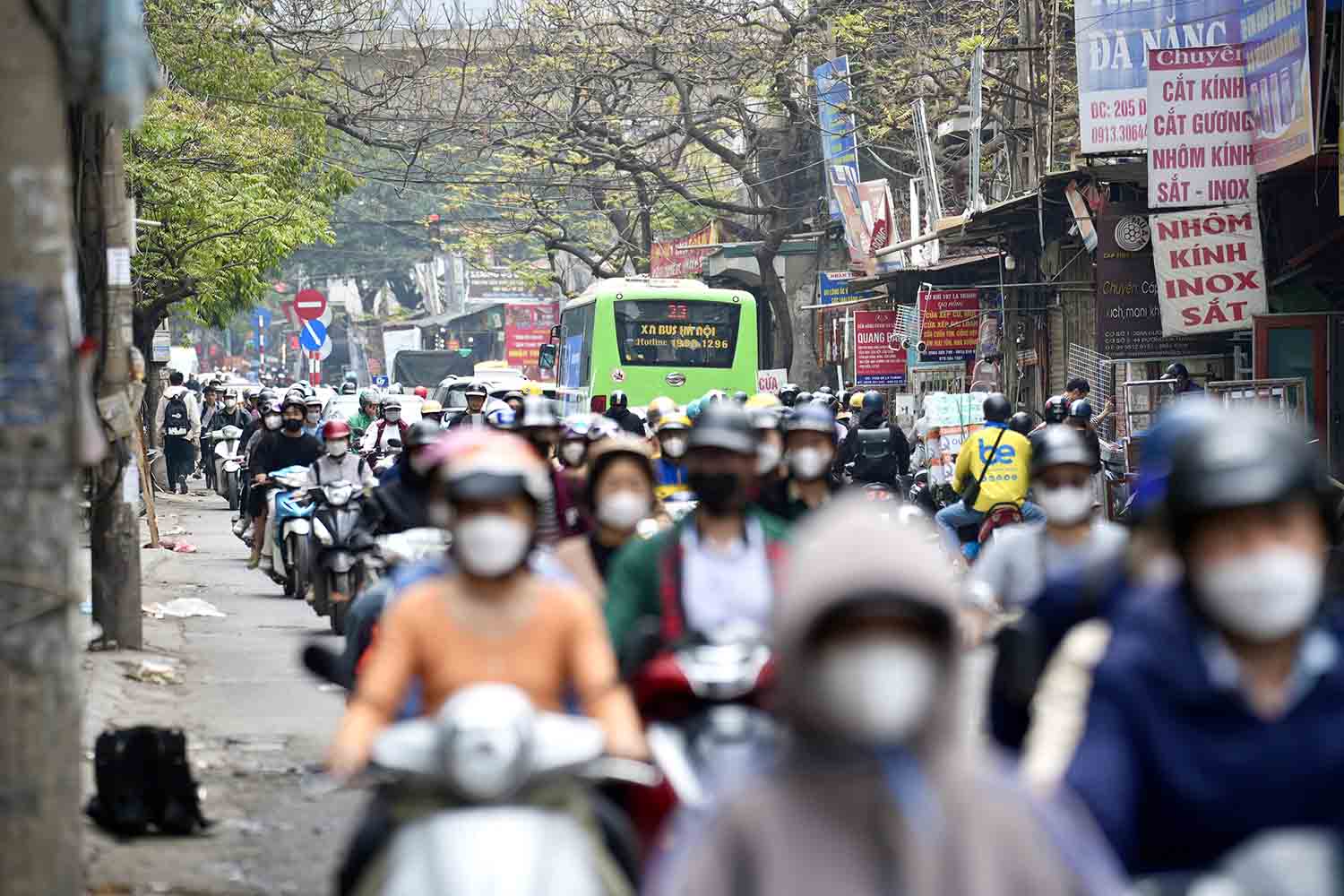
Also discussing solutions to support people to change vehicles, Associate Professor, Dr. Vu Thanh Ca - Senior Lecturer of the Faculty of Environment, Hanoi University of Natural Resources and Environment - said that there needs to be a suitable roadmap for people to change, avoiding wasting resources. For low-income groups, there needs to be financial support from the state through support and loans.
Vietnams experience of providing financial support to fight hunger and reduce poverty very effectively can be applied in this case, emphasized Associate Professor, Dr. Vu Thanh Ca.
In parallel with banning gasoline vehicles, Associate Professor, Dr. Vu Thanh Ca - said that it is necessary to invest in developing public transport systems such as electric buses combined with the existing urban railway system. It is necessary to ensure that the public transport system meets the travel needs of people to work and study in the best way. At the same time, it is necessary to focus on completing the urban railway system as soon as possible.
Only after having a good public transport system and minimizing the number of private vehicles will we have enough capacity to build public electric vehicle charging stations, meeting the needs of the remaining private vehicles. To save costs, especially time, it is necessary to build many public battery exchange stations. Monitoring battery charging stations and battery exchanges should be done automatically through a surveillance camera system. All of the above things need to be implemented according to a suitable plan and roadmap, Associate Professor, Dr. Vu Thanh Ca shared.
On September 19, Lao Dong newspaper organized the Workers' Forum for the Environment 2025. The forum was attended by managers, scientists and a large number of workers - those who directly work in collecting and treating domestic solid waste to work at the same table and propose solutions to help environmental protection and waste management work be synchronous and effective.
The forum is also a voice accompanying each occupational hygiene worker, each locality to continue to promote the protection of the air and water environment, promote waste classification, turn waste into resources, build models for urban and rural waste management and treatment to meet the requirements in the new situation.


